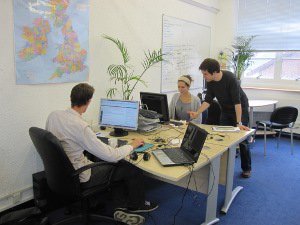Most of us have a few colds each year. Sometimes they do little to stop us in our tracks. Others may need a day or two in bed. But there are many other illnesses that can put you in your bed for weeks or even months. It can feel like life stops and that you’ll never get back to normal. And the more work you miss, the harder life gets financially. So how can you cope with long-term illnesses? And how on earth can you make it back to work?
Feeling ill can make you feel foggy in the mind. Your concentration can be limited as you simply can’t think straight. A lot of this can often stem from the lack of quality sleep that illness causes. If you’re suffering sleeplessness, try to get back into a good routine. Napping during the day will make sleep at night harder to do. Get plenty of fresh air, and try to take some gentle walks once or twice a day. Set a good bedtime routine, and avoid taking meals or watching TV in the bedroom. Hopefully, this will soon result in a good night of sleep.
Feeling ill can also make your body feel weak and tired. Overeating or eating convenience foods won’t help you feel better. In fact, it may make you feel worse! Try to stick to healthy options only to help your body receive all the nutrition it needs to get better. Your poorly body will also benefit from having less work to do with digesting what you eat too!
Pain will often stop you sleeping, moving, thinking clearly and working. There are several top rated tens units that could offer you the pain relief you need to get back to good health and work. You can also try herbal remedies, meditation, or even a pain management consultant to help overcome the pain. Drugs that reduce the impact of pain can usually only be used in the short term. Many are addictive and best avoided. Some will also make you feel more tired and unfocused.
Getting back to work is often a priority when you’ve been off for a while. It’s important to ask your employer for the help you need. Shortening your hours can help enormously at first. Sometimes a few adaptations around your desk can also be beneficial. It’s important to build up your stamina to cope with your work environment. Start with just a couple of hours before and after lunch. If you have pain, be sure to continue doing your stretches and movements at your desk as required.
The last thing you want to do is quit your job. Getting another one while you’re out of work could be quite challenging. Instead, see if there are tasks you can manage, or ask about home working. Your employer will be keen for you to earn your wage. And it’s good for the soul to feel useful. Start small and gently. Over the following weeks, see if you can increase your workload to ease you back to normality.





We provide support for those looking for ‘Take my Exam for me’ solutions. Need help with your exam? We offer services so you can pay someone to take your test, hire someone for exam assistance and solutions.
Pay Someone To Take My Exam=
With a professional online class helper by your side, you don’t have to worry about your online class, discussions, quizzes, or online exams. Get a quote now to get the grades you’ve always dreamed of!
Pay Someone To Take My Online Class
USB Type-C fast charging minimizes downtime, getting you back to vaping in no time. geek bar vape